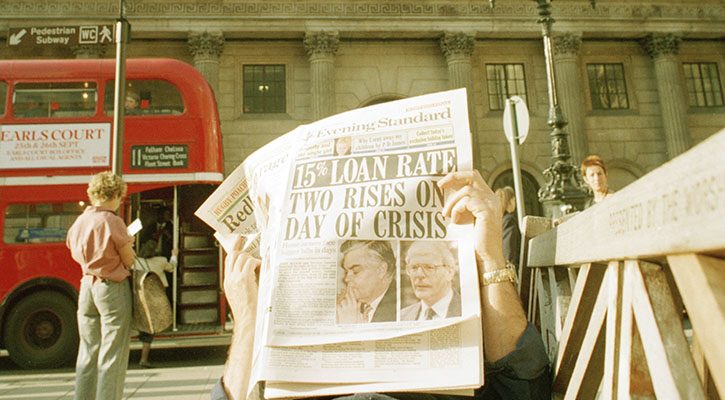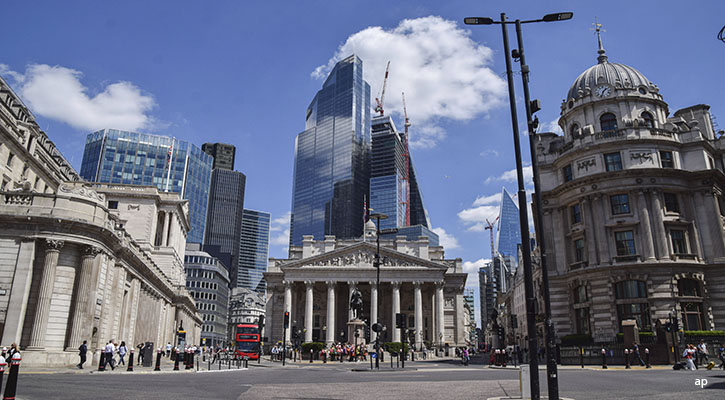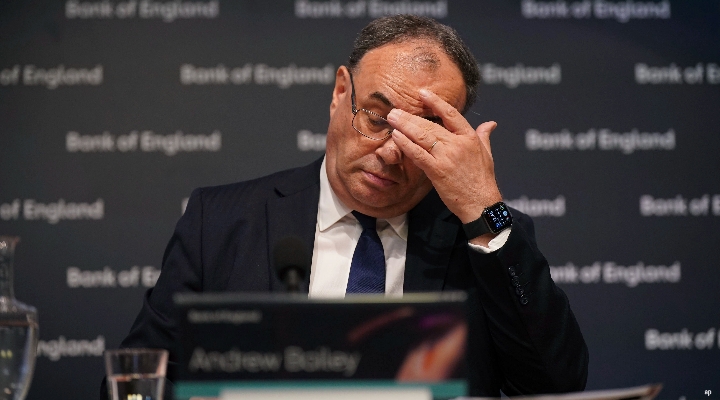
It’s been a summer of excessively high temperatures in the UK but Andrew Bailey will be feeling the heat more than most.
With inflation soaring and on the verge of breaking through 10%, the Bank of England governor is under intense pressure from all sides. But the biggest of these threats arguably comes from the next prime minister.
The likely winner of the race to be Conservative party leader, Liz Truss, has signalled her intention to look again at the Bank of England’s (BoE) mandate. Plans are vague, and there’s an element of candidates testing the water among the party faithful. But the BoE’s independence, for years seen as unassailable, is now considered "up for discussion" among the country’s rulers.
Starting with the basics, central bank independence is generally agreed to be a good thing. Otherwise politicians could tweak the monetary taps in their favour whenever an election is due, ensuring cheap money for voters to load up on cars, holidays and houses. The "feelgood factor" is important in economics and politics, so it’s sensible to keep the cookie jar at one remove.
BoE governors also tend to have longer tenures than their political colleagues. Mark Carney worked with three prime ministers during his tenure, while Andrew Bailey is about to work with his second. The world’s major central banks run on similar lines, from the Federal Reserve to the European Central Bank (ECB).
But central bankers’ independence can’t be taken for granted. President Trump wanted Fed chair Jerome Powell sacked for not cutting interest rates steeply enough in 2019, using Twitter as a platform for this (ultimately unsuccessful campaign). And there’s some overlap between politics and economics even in the Eurozone: countries joining the single currency bloc are ceding control to the ECB and accepting some political uniformity.
Two Political Models
The Bank of England dates back to 1694 but has been independent since the New Labour era began in 1997. What does independence mean in practice? It separates the monetary (interest rates, quantitative easing) from the fiscal (taxes, spending). But the two are linked in that the Bank is a buyer of government bonds, which are issued to finance spending. (Increasing demand for bonds raises their price and lowers the yield, which keeps borrowing costs low.)
The Bank has a "mandate" of price stability, but this is granted by the government of the day. Since 1997, the BoE been tasked with keeping inflation at 2%, and any deviation from this by more than 1% triggers an explanatory letter from the governor to the chancellor. So while the monetary policy committee (MPC) is left alone in its daily operations, it is answerable to the government and supports its designs for economic growth. Members appear before MPs at select committees on a regular basis, which adds an extra layer of accountability.
It's not all 1997 though. The BoE's remit has expanded in the decade since the financial crisis, particularly in the Carney era (2013 to 2020) as it acquired regulatory powers from the defunct Financial Services Authority. The Prudential Regulation Authority, which regulates banks, building societies and investment companies, was born as Carney’s tenure began.
Some Truss proposals involve the Bank targeting money supply and nominal GDP as well as inflation, a move that would take monetary policy back to the Thatcher era, where politicians used all their levers to pump up the economy (when Gordon Brown promised "no more boom and bust", he was thinking of the volatile era of the 1980s with its soaring highs and painful lows).
"What might have been done if the Bank of England had not been independent through the varying crises over the years? Rates would probably have been more volatile, inflation higher, liquidity for banks during the financial crisis less available. Sterling would have been weaker too," argues James Lynch, fixed income manager at Aegon Asset Management.
Readers with longer memories will also recall when UK interest rates hit 15% in 1992 on Black Wednesday (see picture), a perhaps all-too-easily forgotten moment of pain that saw the United Kingdom crash out of the European Exchange Rate Mechanism. Stood next to then-chancellor Norman Lamont as he explained the day's events was a young political adviser by the name of David Cameron, but that's another story.
A Whole New World
Bailey gave perhaps his most downbeat presentation at the August 2022 press conference, forecasting a prolonged recession and 13% inflation. Asked about the recent noise over the Bank’s remit, he played a straight bat, saying simply "I look forward to working with the new prime minister." But he did say that the current regime has been "carefully constructed" and any changes need to be handled with care.
For 25 years the Bank has done its job, sticking very close to 2% target. So why look to dismantle a system that has worked? Britain’s institutions are periodically and cyclically asked to prove their worth under the "fit for purpose" mantra. Usually a crisis exposes their weaknesses and regimes get retooled, as happened with financial regulation after 2008.
But, as Bailey is keen to note, the current inflation crisis in the UK is an external one. There are questions over whether the BoE was nimble enough last year, but its current malaise has multiple origins. A politician would love to lay the blame for the cost of living crisis somewhere (and away from Numbers 10 and 11 Downing Street), but that probably won’t wash with voters. Energy companies are taking the flak currently, but that could change.
Does the BoE now have too much power? Is inflation targeting too narrow a remit? These are valid questions, but perhaps ones not asked by a new prime minister gearing up for a general election within two years. Of course, if inflation does fall back to 2% – as the Bank is forecasting – the pressure on Threadneedle Street will ease and politicians may back off.
But what of the next 25 years? "This is going to be a very different environment [for the BoE]," says Lynch. "Policy independence works very well in the environment of low inflation, growing economies, and a stable political backdrop. But it does not take much imagination to see where these conditions could be challenged."





























